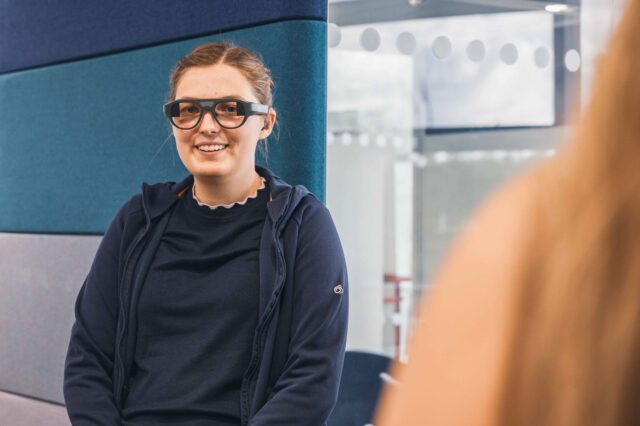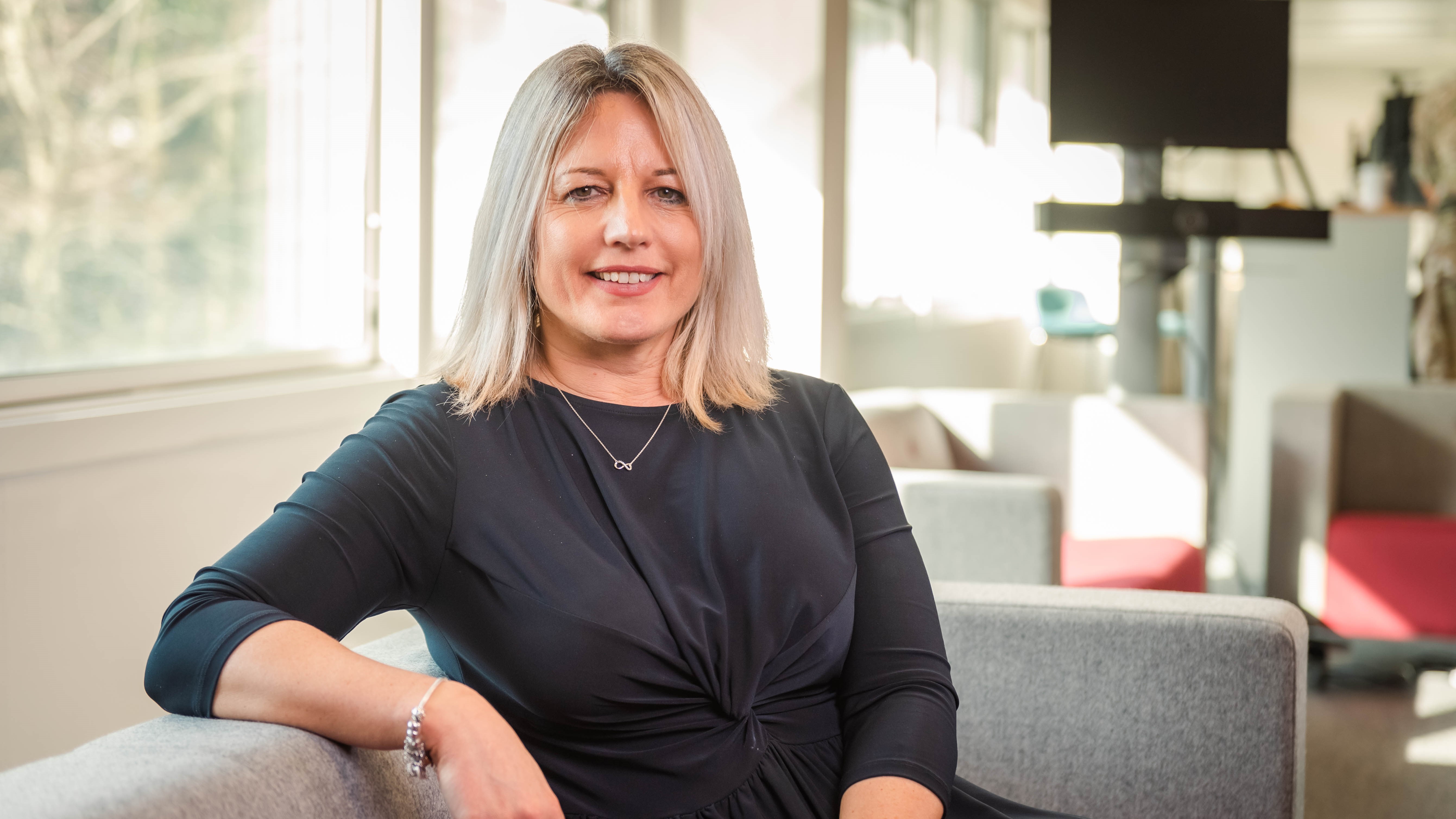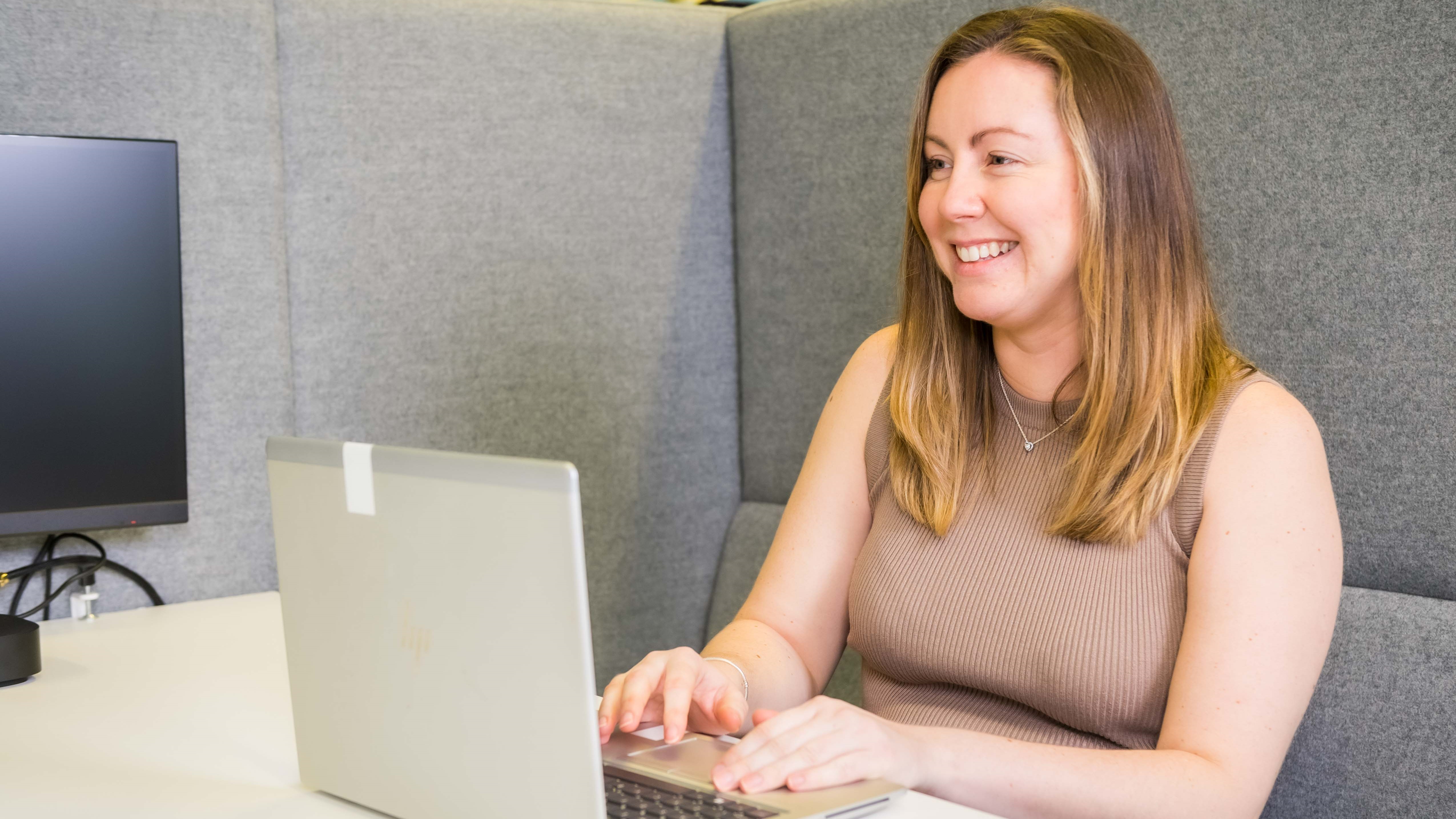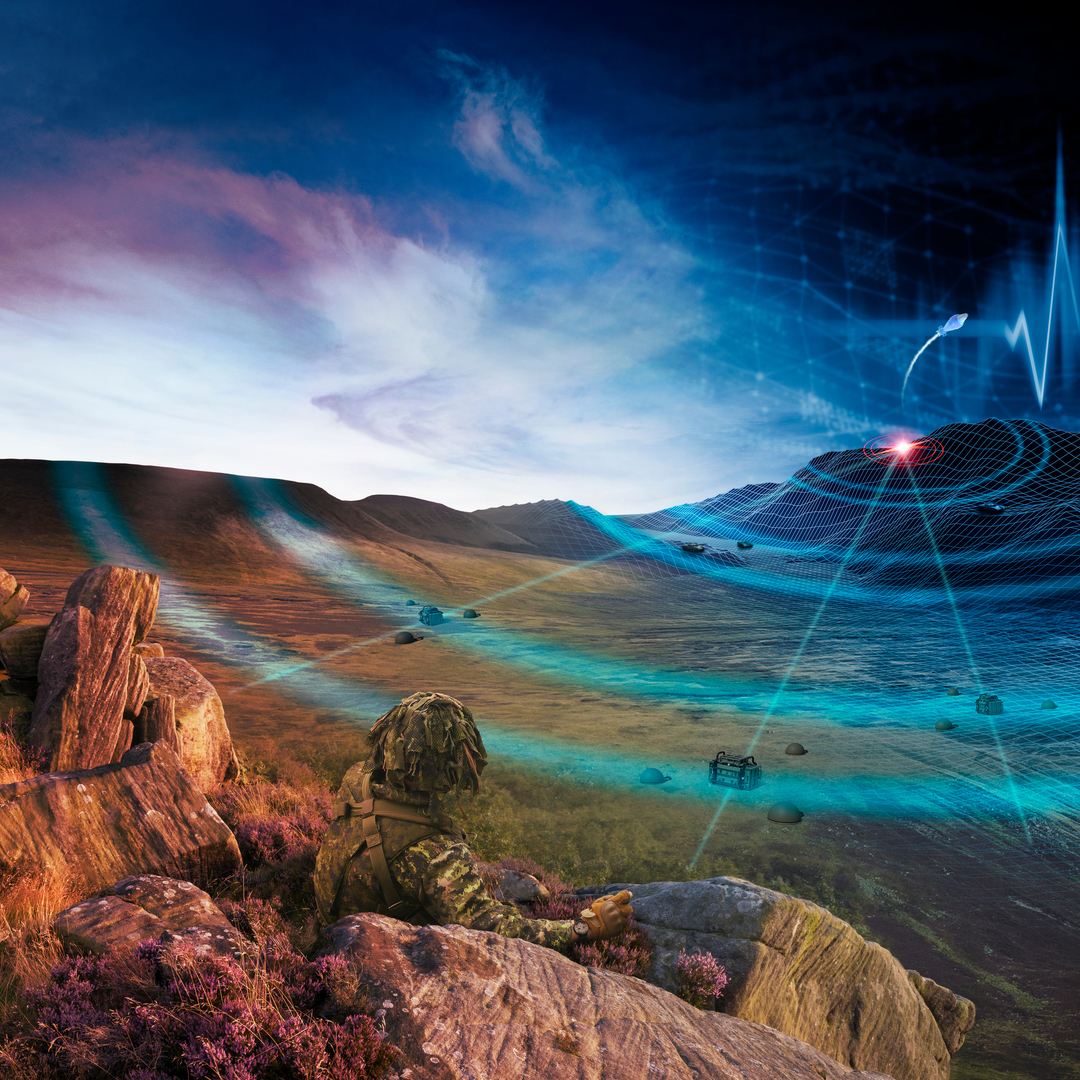Published 30 September 2024
Share this story
Pioneering glasses that use augmented reality to project real time conversations onto the lens are being trialled by government employees with hearing difficulties.
The cutting-edge technology allows users to engage directly in dialogue rather than relying on lip reading or a British Sign Language (BSL) interpreter being available.
The three-month pilot is at MOD Abbey Wood, the Bristol-based headquarters of DE&S.
Initial feedback is that the £900-a-pair glasses, which can also be configured to translate conversations in over 90 different languages, could transform the working lives of employees in the deaf and hearing loss community.
If successful, the aim will be to roll out the availability of glasses across the MOD and potentially other government departments so staff with hearing loss have more options to meet their needs.
Andy Start, DE&S CEO said:
“At DE&S we are committed to an inclusive working environment where everyone can thrive and reach their full potential. This pilot will determine if this technology can help staff do their job to the best of their ability.”
Under the £10,000 contract with US-based XRAI Glass, eight sets of glasses will be available to book as a priority by members of DE&S’s deaf and hearing loss community.
Members of the Deaf and Impaired Hearing Network at DE&S attended a demonstration event to hear more about the glasses and try them out prior to the pilot which starts today (Mon 30th Sept).

Engineering Delivery Partner (EDP) commercial manager James Quinton-Prior said:
“I’ve been really impressed and see these glasses as a potential game-changer. Giving those in the deaf and hard of hearing community tools like this will allow us to break down barriers and more easily progress our careers.”
Catherine Wrigley, who works in Helicopter Safety Governance, added:
“Having the subtitles displayed in my line of sight will help stop the ‘tennis match’ in meetings as I try and find the next speaker. Other available software for subtitles can be very inaccurate and state things like ‘having a pasty’ when in fact it’s ‘having capacity’.”
The pilot will look to gather feedback around how the glasses perform in different scenarios including one-on-one, groups and settings where there is significant background noise.
The pilot’s lead is Chris Chennell, a senior architect in the DE&S Digital delivery team.
“As someone who does not struggle with hearing, this project has been an incredible learning experience for me and one that has become very important to me,” he said.
“The initial feedback has been really encouraging, and I’m very hopeful this will prove to be a really positive addition for our staff. The next three months will gather more feedback to help us determine the best way to assist our colleagues with hearing loss, whether it’s through this technology or something else.”













